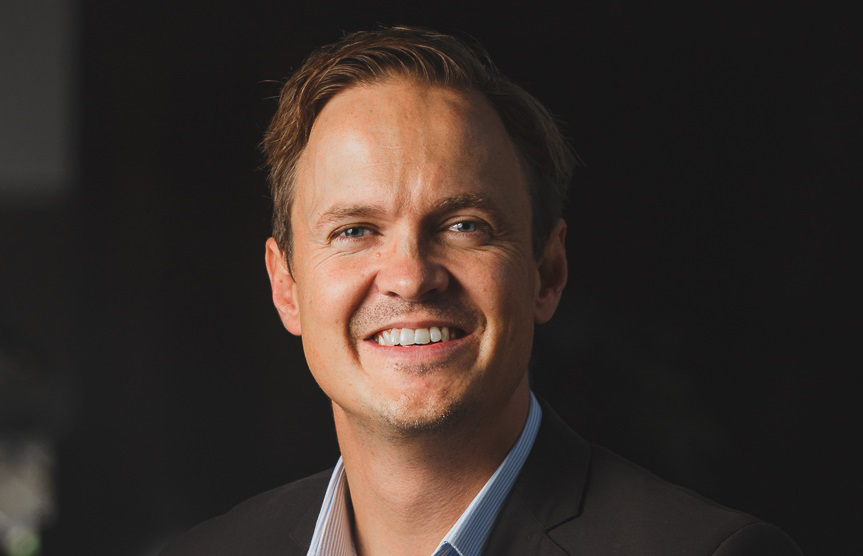Eugene Strauss is Managing Director at Absa Life Insurance
SPONSORED
This webinar was hosted by Absa and the Mail & Guardian. It featured Ineke Prinsloo, Head of Client Insights as Consulta Pty Ltd and Eugene Strauss, Managing Executive of Absa Life Insurance and Pan-Africa Absa Life Insurance. It was facilitated by financial journalist Michael Avery, Anchor for Classic Business.
The South African Customer Satisfaction Index (SAcsi) is an independent national benchmark of customer satisfaction of the quality of products is a model that began in 1994 in the US. It is a very good index of what customers want, and about 450 000 interviews have been conducted to date in South Africa. What do customers expect from their insurance companies, for instance? Those interviewed must have experience with the product or service concerned.
Loyalty is an interesting part of this concept. Are South Africans happy with the service they obtain from their long-term insurance companies? Surveys reveal that bank insurers are doing much better than the traditional insurers, because they have integrated digital solutions that they can roll out fast, which satisfies consumers. The game has changed in financial planning: there must be a holistic offering; consumers are going to scrutinise every penny they spend; there must be ethics, quality and reliability; and customers’ complaints must be addressed.
Absa has come out very well in the survey results. Buying life insurance is not a rush purchase, but it is emotive, because customers do want peace of mind. Your product must therefore be simple and easy to understand for clients. The test comes when a claim must be settled, which is usually at a very stressful times for clients; they have to trust you implicitly, and the bank must deliver fast. Products must be accessible, and banks know a lot about their customers, what phases in their lives they are going through, and when claims may be applicable.
 Ineke Prinsloo is Head of Client Insights at Consulta Pty Ltd
Ineke Prinsloo is Head of Client Insights at Consulta Pty LtdAbsa has been asking consumers online what they expect from financial services. Since the lockdown began, clients are focusing on basic things: safety and security and income continuation, and counting their pennies. Consumers want their insurers to show that they care, in a direct and personal way, not just in general ways such as debt relief. Needs are changing — people want visible value for their money — consumers are asking if they are getting value from what they pay on their premiums.
Trust is very important, especially now that things are tougher financially, so Absa has been looking for ways to show that it offers value, for instance in the form of benefits and how they are passed on. “It’s not about what you say, it’s what you do; every interaction is very important, and you have to live up to what you promise,” said Eugene Strauss. Track records of insurance companies are important in this regard. Insurers must also be flexible; under Covid-19, Absa has allowed customers to skip more payments but still retain their cover.
Digital access and connection is very important for consumers, and this process has been accelerated under Covid-19. It’s back to basics: people are very worried about safety and security right now, so insurers have to show clients what the tangible value of their policies is, right now, meeting them head on. There is a lot of anxiety and uncertainty, and people want real contact, so even if there are digital options, people are opting for phone conversations — calls have increased in length by about a minute on average. Conversations help people understand their issues.
Letting consumers know about their benefits helps them to understand what value they are getting from their investment, and frequent communication and accessibility helps concerning this. Absa has launched a WhatsApp chat pod that enables clients to ask questions about their policies, and which reminds them of things like benefits.
There’s been a lot of conversation about business interruption cover since the Coronavirus crisis began, but most individual life policies don’t have retrenchment cover, unless you are disabled. This is something that should be considered when you craft your overall insurance package. Absa has expanded its definition of what it covers, and for self-employed people, and is considering claims on case-by-case basis, trying to be as flexible as possible in this regard.
 Michael Avery, Anchor of Classic Business, Classic 1027
Michael Avery, Anchor of Classic Business, Classic 1027Absa has done research with SMME owners in the Covid-19 crisis, revealing that 17% said they were not going to make it; 52% said they would make some kind of plan; about 35% said they had applied for relief. Of these, more than half have not obtained any relief, so many have said they won’t make it past July. As government is not helping many SMMEs, there is a big opportunity for the financial sector to step in, to keep small businesses viable.
Things are changing because of Covid-19 and will stay that way. People are beginning to understand that they can speak to advisors on screen as well as in person. Customers must be treated fairly, and the gap between what they need and what insurers offer must be bridged. Absa has always put the customer first, trying to provide not just fair treatment, but also peace of mind, entrenching that culture, so it’s not just a matter of “ticking all the boxes”. Covid-19 has shown that financial institutions must listen to the research, and ensure that they take care of their customers.